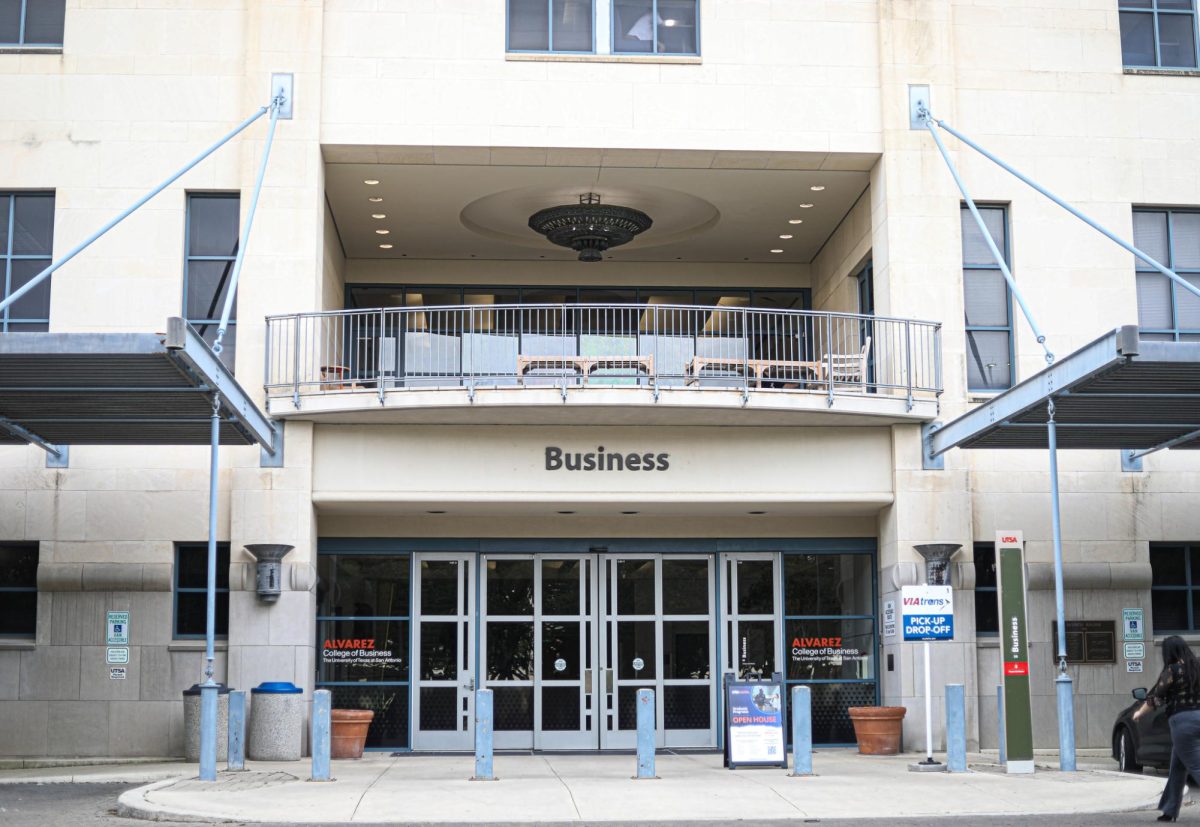The UTSA East Asian Institute hosted the South Korean Consulate General, Yun-Soo Cho, on April 6, in an effort to raise awareness about U.S. and South Korean relations. Consul Cho’s presentation “Partnership between Korea and Texas in the 21st Century” focused on the historic and economic ties between the US, Texas and Korea with a focus on future trade relations and investment in the American energy market. The presentation was held in the Business Building with well over 100 students, faculty, and San Antonio city officials in attendance.
Currently, South Korea has the thirteenth largest economy in the world and is the United States seventh largest trading partner. Korea is the world’s number one builder of ships, DRAM computer chips and LCD screens. It is home to many familiar tech and automotive companies such as Samsung, LG, Hyundai, Kia and Daewoo. Although only one-seventh the size of Texas, it has a population of 48 million people, double that of the Lone Star state. One of the “Four Asian Tigers,” South Korea has become a model for developing countries by transforming itself from a third world agrarian economy to a global economic powerhouse and member of the G-20. There are currently over 130,000 Korean residents living in Texas, 10,000 of them in San Antonio. Primary US exports to Korea include aircraft, computer chips, heavy equipment and agricultural products. Korea is Texas’ primary export market and remains Korea’s largest trading partner in the United States. Seoul has committed to continued investment in Texas by asking more Korean firms to enter the energy market in the Texas region.
One of the key points in Cho’s presentation was the Republic of Korea-United States Free Trade Agreement (KORUS FTA). Negotiations on the treaty began in June 2006, and the treaty was signed into effect in June 2007, but neither the U.S. Congress, nor the South Korean National Assembly has yet to approve the treaty. Although economic relations between the two countries have historically been strong, the U.S. has moved from Korea’s primary trading partner to number four behind China, Japan and the European Union (EU) in the past decade. According to Cho, “The Free Trade Agreement would greatly benefit our two nations by eliminating Korean import tariffs on 95 percent of the US industrial products, 50 percent on US agricultural exports, and could create up to 250,000 additional jobs.”
While most western nations continue to await signs of economic recovery, East Asia has weathered the economic storm far better than its American and European counterparts. Even amidst the current global recession, which had resulted in a steep decline in international trade, South Korea’s economy still grew at a respectable 5.5 percent. Steady growth throughout East Asia has caught investor’s attentions in both the European Union and the United States. The EU remains as the United States’ biggest competitor in Korea where the two countries compete in 11 out of 20 of the top exports. The EU, however, ratified a similar treaty last year that could give them a trade advantage if the KORUS FTA does not pass. Cho stated in his presentation that if the United States fails to ratify a similar treaty, the cost of inaction could lead to decreased US exports to Korea and a loss of up to 345,000 American jobs. If Congress were to approve the treaty, the clearest gain for the US would be for the American automotive market, which could see a sharp increase in sales in Korea as the treaty would effectively abolish the current taxes on large American vehicles. More than $1 billion worth of US farm exports to South Korea would become duty-free immediately, including beef which is expected to see a decrease from the current 40 percent tariff over the next 15 years. The South Korean Ambassador has met with members of Congress more than 300 times in regards to the FTA, but due to the current political environment in Washington, it is unlikely that the treaty will be ratified until after the November elections.
Besides trade, Cho also seeks to strengthen cultural ties between the two countries by advocating exchange programs such as Teaching and Learning in Korea (TaLK). TaLK is a program sponsored by the Korean Ministry of Education, Science and Technology that was created as a way of improving the English skills of Korean students. The TaLK program provides an opportunity for English speaking college students to work with Korean teachers to help teach conversational English to elementary school students in rural Korea. Students are asked to sign six or 12 month contracts and in return will receive teacher training, airfare, a $1,300 monthly stipend, housing, meals and health insurance.
More information about the TaLK program may be found at www.talk.go.kr.
At the conclusion of the evening’s presentation, Consul Cho answered questions from students in the audience including what factors have led to South Korea’s economic success in the past half century.
Cho explains, “Korean scholars always assume three factors, including an open-door policy, good government and education level. I am very positive in the future of the Korean economy. Why, because the Korean young generation is very advanced in the field of science and education. We don’t have any natural resources. We only have human resources. Those human resources are very strong, like in America, and are very creative and very competent. So in the future, although there are ups and downs in the Korean economy, the human resources will definitely support it. I think the most important event to take place would be unification. In case unification happens, the Korean GDP will fall down very sharply, and it has to go up slowly. In this process, I think the Korean young generation can support us. So, I’m not sure what will happen instance by instance, but I am very optimistic about the future.”
Mimi Yu, Associate Director for the UTSA East Asia Institute, who was responsible for bringing Consul Cho to UTSA, said, “I think in order for our American students to stay competitive, it’s important for them to not only know themselves, they need to know who they’re really competing with. By attending lectures like this, I think it will really help broaden their perspective of the global society. I think it’s important that they keep on reading and know what’s going on outside their hometown and know the global society as a whole.”











